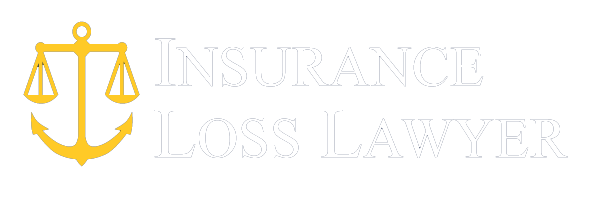Yes. Most insurance policies require an insured to submit to an Examination Under Oath as part of the insurer’s investigation prior to making a determination of coverage. A sample policy provision reads:
“As often as we reasonably require: (3) Submit to an examination under oath while not in the presence of any other insured, and sign the same.”
An Examination Under Oath is a procedure wherein the insured is asked a number of questions by the insurer’s attorney, under oath, regarding the subject claim. The Florida Rules of Civil Procedure do not apply to Examinations Under Oath. Because an Examination Under Oath is conducted by an attorney for the insurer and involves sworn testimony regarding the insured’s claim, I recommend that all insureds have an attorney present. The insured’s attorney will be able to monitor the propriety and scope insurer’s conduct and questions in order to protect the insured’s interest in the claim.
As an Examination Under Oath is a sworn statement which can be used by the insurer in evaluating your claim, and in a future court proceeding, it is imperative that an insured answer all questions truthfully. An insured should refrain from speculation or exaggeration in any way. If you do not know the answer to a question it is acceptable to simply say “I don’t know” or “I don’t recall.”
Additionally, an insured should only speak if there is a question pending and only address that question. Do not volunteer additional information, information that is not pertinent to your claim or provide detailed or lengthy explanations. Even though it may seem like you are being cooperative, this often provides the insurer with additional information on which to ask you questions and delve deeper into your claim. Remember, it is the insurer’s goal to not have to pay your claim! The more information you volunteer the more ammunition the insurer has in its investigation and preparation of a potential defense against paying your claim.
Further, an insured should defer to opinions rendered by experts and should defer to the authors of documents. Do not speculate as to an expert’s opinion or try to interpret the meaning or intent behind the content of a document that was not authored by you.
An Examination Under Oath can last as little as one (1) hour and as long as eight (8) hours. The duration of the Examination Under Oath is often unknown at the outset and depends on a number of factors. Some factors include who the attorney for the insurer is, how complicated your claim is, how much you are claiming in insurance benefits, how old the claim is, how many claims you have previously filed…etc.
While most Examinations Under Oath do not last the entire day, the insured should be prepared to be available for a full day as the insurer has the right to use the entire work day to conduct its Examination Under Oath. Failure to sit for an Examination Under Oath for a reasonable period of time may provide the insurer with grounds to deny your claim, so an insured should plan ahead and always be available for a full day.
What can a policyholder do to prepare for an EUO? First, I recommend that a policyholder sit down and create a timeline for the claim. When did they become aware of damage? What was the property’s condition prior to the loss? What steps were taken immediately to mitigate the damage? When was the insurance company called? Were any statements made by the insured to the insurer? If so, consistency is a must in the EUO process. What repairs were made? Who made the repairs? How much did they cost? If an estimate has been submitted by a public adjuster or other professional, have the person who generated the estimate explain it so everyone agrees on the damage claimed. While an insured need not know the precise dates or amounts claimed for specific damages, an insured should be familiar with the events and ongoings of the claim, who has been involved, what actions have been taken since the loss and possess a working knowledge of their claim.
Also, it is important to note that EUOs are not memory tests. If a policyholder brings information and refers to it at an EUO, they can. One caveat: if notes are used, the defense attorney will ask for a copy and possibly attach the notes to the EUO as an exhibit.
The insurer will often require the insured to produce documents prior to an Examination Under Oath. The insurer will often send a schedule requesting specific documents or documents that relate to a specific area of inquiry regarding your claim. An insured should perform due diligence in attempting to locate and produce as many documents that are responsive to the insurer’s requests as possible.
Copies of all responsive documents should be forwarded to the insured’s attorney well in advance of the Examination Under Oath so that the insured’s attorney has an ample opportunity to review the documents prior to producing any documents to the insurer.
An insured is not required to go out and search for documents. An insured is only required to produce responsive documents that are in their immediate possession. For example, an insured is not required to call their bank, hospital, doctor, mortgage company, etc. in order to obtain documents that are responsive to the insurer’s requests. If you do not have the requested documents in your possession then it is acceptable to respond to the insurer’s requests in that manner. That being said, the more documents an insured can produce the more the insurer will view you the insured as being cooperative and often eases the investigative process for the insurer as well as the insured.
There are often issues as to which questions an insured must answer and which question, or type of questions, an insured can refuse to answer. The general rule is that an insured must answer all questions relating to the subject claim and an insured should attempt to answer all reasonable inquiries posed by the insurer. Attached hereto please find a recent and informative article addressing this issue in greater detail.
“Do I have to answer that?” Occasionally, one of my clients will turn to me during an examination under oath and asks that very question. Almost every time, I answer, “Yes,” or at least have the questioner clarify a poorly-worded question. The reason I usually counsel clients to answer has several elements, but most importantly: if a fight may be easily avoided and there is no benefit to fighting, why fight? If a policyholder refuses to answer a question at EUO, defense counsel immediately suspect fraud, thinking, “Why else would someone refuse to answer questions unless they were hiding something?” But more importantly, I know defense counsel’s eyes will start rolling around like a slot machine until they land on DENIAL because they believe they have right to ask anything and the insured has to answer, otherwise the policyholder is violating the policy’s duty to cooperate. Is this true? May defense counsel ask the policyholder literally anything at an examination? Must the insured answer or risk violating the cooperation clause?
Typically an insured does not want to answer questions that are too personal. Often the subject of personal finances is one where policyholders raise a skeptical eye. That is, “What do my finances have to do with my insurance claim?” Well, the insurer has the right to delve into areas during the examination that may expose fraud. In the Eleventh Circuit Court of Appeals decision of Halcome vs. Cincinnati Ins. Co., 778 F.2d 606 (11th Cir. 1985), the insured made a claim for jewelry theft, but refused to answer questions about their income. The court declared that this refusal was a breach of the policy conditions and upheld the insurer’s denial of the claim. The Eleventh Circuit maintained this reasoning in Jacobs vs. Nationwide Mutual Fire Ins. Co., 236 F.3d 1282 (11th Cir. 2001). The court ruled that the insured’s refusal to answer questions about their finances during an EUO was non-compliance with the policy’s post-loss obligations and rendered the policyholder unable to compel appraisal.
While I was thinking about this article, one of the first ideas that came to me was an insured invoking his or her 5th Amendment right to self-incrimination. That is, the insured refusing to answer questions under oath which may be used against him or her in a criminal proceeding. The Eleventh Circuit ruled on this issue in Pervis vs. State Farm Fire & Cas. Co., 901 F.2d 944 (11th Cir. 1990). The policyholder asserted his 5th Amendment rights and refused to answer questions about his fire loss. The court ruled that examinations under oath are contractual obligations which must be complied with in order for the insured to garner recovery. Thus, reasoned the court, the 5th Amendment was not a defense to the insured’s failure to fulfill his contractual obligations, and the insurer’s denial was upheld.
The common thread seemingly running through these decisions is that the policyholder may not refuse to answer questions pertaining to the actual loss itself or circumstances surrounding that loss. Legally speaking, this is referred to as materiality. If the question is material to the investigation, i.e. pertaining directly to the loss or surrounding circumstances, then the policyholder must answer the question or violate the policy provisions. In fact, the highest authority has said just that, albeit prior to this country’s 100th birthday. In the 1872 case of Insurance Companies vs. Weides, 81 U.S. 375 (1872), the Supreme Court of the United States ruled that an insured must answer only those questions which are material to the investigation of the loss. In Weides, the insured had suffered multiple fire losses, for which he was compelled to sit for an examination under oath. During the examination, defense counsel demanded information concerning the settlements reached with other insurers. The policyholder refused to answer, and the insurer asserted that this was a violation of the policy’s conditions for which they could deny the claim. While there were other issues touched upon in the High Court’s ruling, their ruling was clear on this issue: “We are unable to perceive that the questions proposed had any legitimate bearing upon the inquiry, what was the actual loss sustained in consequence of the fire.” Further reasoning that there was no evidence that the insured refused to answer any material questions about the loss, the court ruled that the insured’s refusal to answer the questions concerning other claims was not a breach of the policy’s conditions.
Whether a question is material or not is almost always a question for the trier of fact, that is, the judge or jury, and every jurisdiction will have such case law. In Florida, the case which states whether something is material is a matter for the trier of fact is Haiman v. Federal Insurance Co., 798 So. 2d 811 (Fla. 4th DCA 2001). With these sage words, however, heed this warning, as a rule of thumb: ANSWER THE QUESTION!


2550 South Bayshore Drive
Suite #211
Miami, FL 33133
Tel: 855-456-0445
Fax: 305-967-8182
Info@NeblettLaw.com

Just write down some details and our customer success heroes will get back to you in a jiffy!